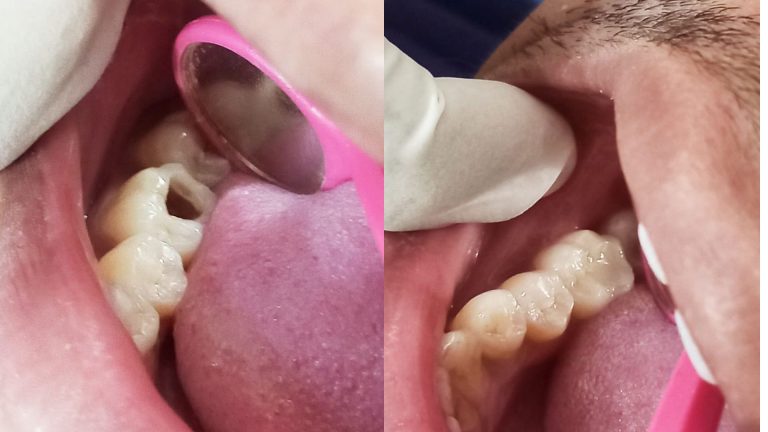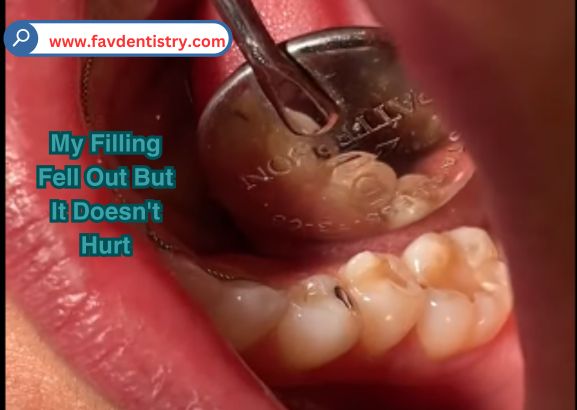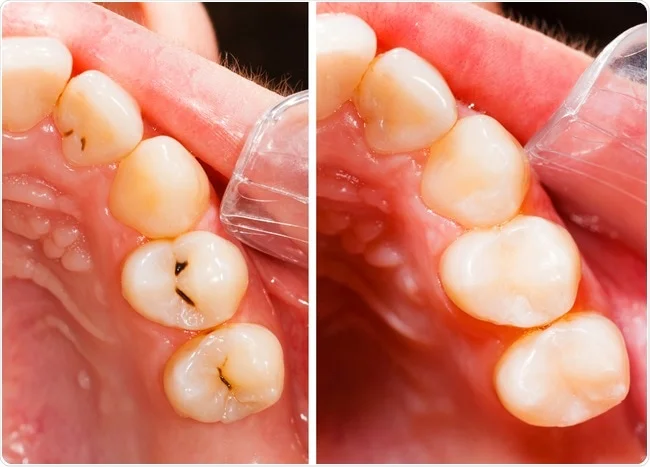Last Updated on 3 weeks by DR. ALBIN SIPES
To fix a loose filling at home, apply dental cement or denture adhesive directly onto the loose filling and bite down to secure it in place. This temporary solution should be followed by a visit to a dentist for a permanent solution and to prevent any further damage or complications.
Loose fillings can cause discomfort and increase the risk of decay if not addressed promptly. Taking immediate steps to secure the filling can help alleviate these issues. We will discuss the causes of loose fillings and provide some tips on how to fix them at home temporarily until you can see a dentist.
Remember, it is essential to consult a dental professional for a more permanent solution.
Why Loose Fillings Happen
Loose fillings can be a common dental issue. The main causes are decay under the filling and bite forces from daily wear and tear. Decay weakens the tooth structure, leading to a loose filling. Bite forces and daily use can gradually loosen fillings over time.
If you experience a loose filling, it’s important to address the problem promptly. Ignoring it could lead to further complications, such as tooth sensitivity, pain, or even infection. Fixing a loose filling at home may not be recommended, as it requires expertise and proper tools.
It is best to consult a dentist who can examine the filling and provide the appropriate treatment, which could involve replacing the filling or potential dental restoration. Regular dental check-ups can help detect and prevent loose fillings before they become a bigger problem.
Signs Of A Loose Filling
Signs of a loose filling may include sensitivity to hot or cold food/drinks, pain while chewing, and feeling a rough edge on the tooth.
Easy Diy Solutions To Fix A Loose Filling At Home
Fixing a loose filling at home is easy with these temporary solutions. Over-the-counter dental cement or dental wax can provide relief. Another option is using sugarless gum to temporarily secure the filling. If you want a permanent fix, follow this step-by-step guide to remove the old filling.
You’ll need a mirror, dental explorer, and tweezers. Remember to wear protective goggles and gloves for safety. Once the old filling is removed, choose the right dental filling material. Amalgam and composite resin are common options. Consider the pros and cons of each material before making a choice.
Fill the cavity with the chosen material and secure it with dental adhesive. Polish the filled tooth for a smooth finish. Keep in mind the importance of proper oral hygiene after fixing the loose filling. Seek professional dental assistance if needed, as diy solutions come with risks and potential complications.
Frequently Asked Questions On How To Fix A Loose Filling At Home
How Can I Fix A Loose Filling At Home?
To fix a loose filling at home, start by cleaning the area around the filling. Then apply dental cement to the tooth to secure the filling in place. Make sure to follow the instructions on the dental cement packaging carefully.
If the filling is still loose after attempting this at-home fix, it’s best to consult with a dentist for professional treatment.
What Causes A Dental Filling To Become Loose?
Several factors can cause a dental filling to become loose. These include tooth decay, normal wear and tear, chewing on hard foods, teeth grinding, or a sudden impact to the mouth. It’s essential to address a loose filling promptly to prevent further damage to the tooth and potential complications.
Can I Fix A Loose Filling Without Seeing A Dentist?
While there are temporary solutions to fix a loose filling at home, it’s best to see a dentist for proper treatment. Attempting to fix it yourself can lead to further complications or damage to the tooth. A dentist will be able to evaluate the situation, determine the cause of the loose filling, and provide the appropriate treatment.
Conclusion
To sum it up, fixing a loose filling at home can be a simple and cost-effective solution to avoid unnecessary dental visits. By following the step-by-step process outlined in this blog post, you can confidently address the issue and alleviate any potential discomfort.
Remember to gather all necessary materials, take your time, and practice patience during the process. Taking proper care of your oral health is essential, so keeping an eye out for loose fillings and addressing them promptly can prevent further damage in the long run.
However, it’s important to note that while these home remedies can offer temporary relief, it is always advisable to consult a dental professional for a more permanent solution. Don’t neglect your dental wellbeing – take the necessary steps to fix a loose filling and maintain a healthy smile.




